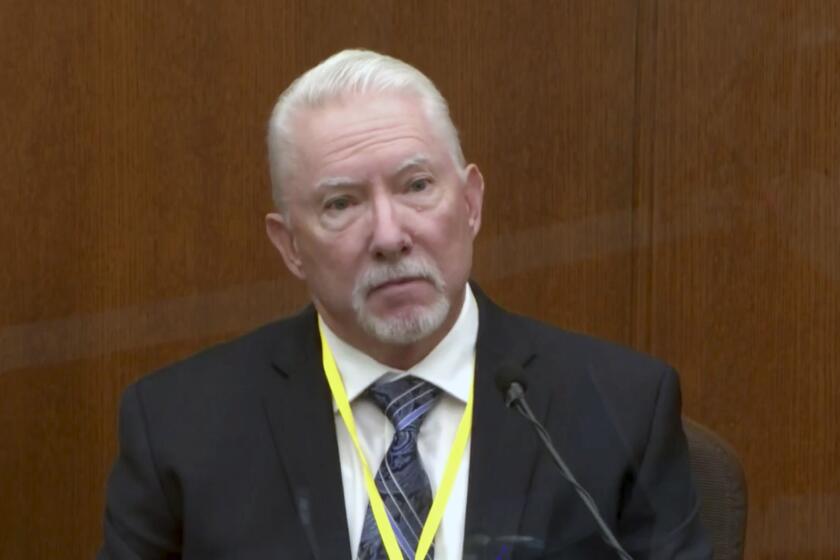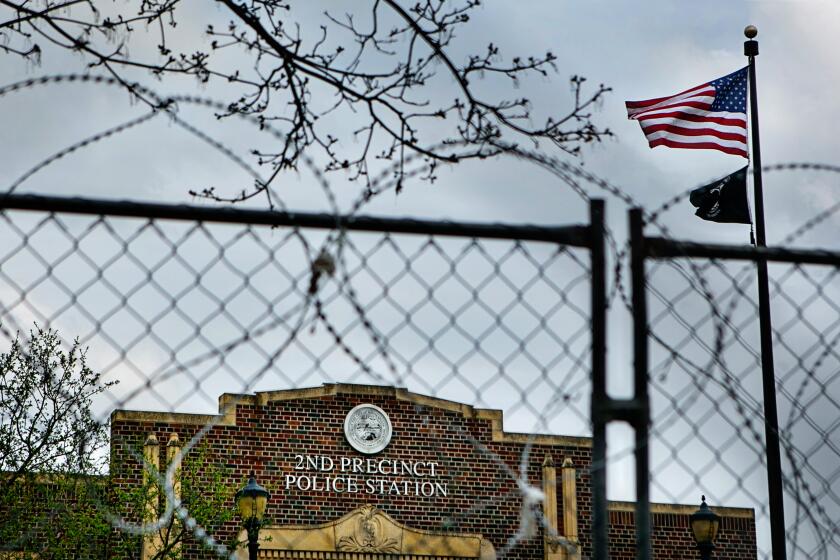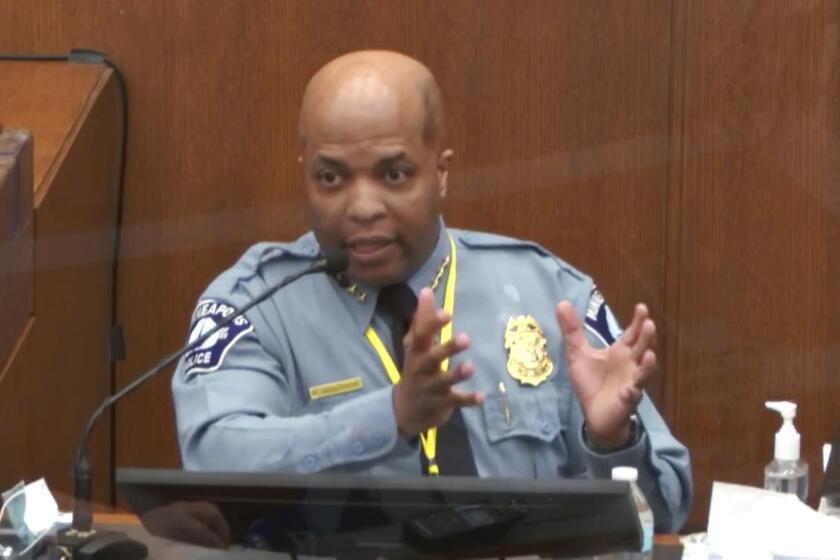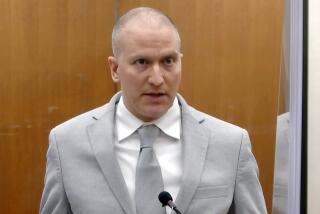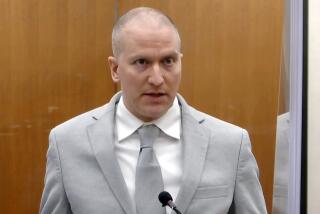As defense begins, all eyes on whether Derek Chauvin will take the stand
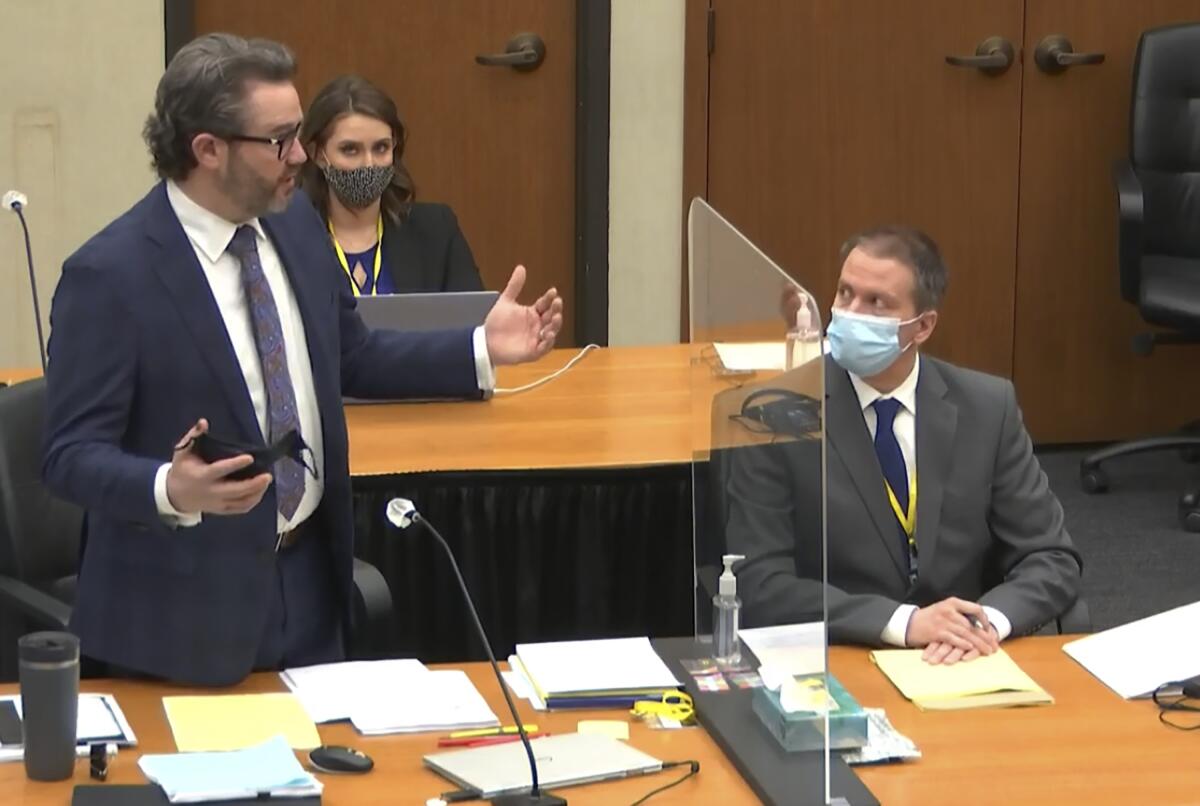
CHICAGO — Now that prosecutors have wrapped up their case against former Minneapolis police officer Derek Chauvin in George Floyd’s death, Chauvin and his legal team must make a decision about whether he himself should take the stand.
Doing so could help humanize Chauvin for jurors who haven’t heard from him directly at the trial, but it also would open him to what could be devastating cross-examination.
Chauvin is charged with second- and third-degree murder and manslaughter in Floyd’s death last May. Here’s a look at some of the perils — and possible benefits — in Chauvin testifying:
Why might Chauvin want to testify?
Images from bystander video of Chauvin pinning Floyd to the pavement, the officer’s face impassive, have been played nearly every day at the trial and are likely seared into the minds of many jurors.
The face mask Chauvin has been required to wear in court because of the COVID-19 pandemic has hidden any possible display of emotion by him during testimony. Taking the stand might be the only way for him to explain the video and show another side of himself.
“He has nothing to lose, given that that video is so damaging,” said Phil Turner, a former federal prosecutor in Chicago. “You’ve got to get up there and give an explanation. It’s a no-brainer. You have to.”
The defense has begun its case at the murder trial of ex-officer Derek Chauvin after days of testimony and video depicting George Floyd’s final moments.
Multiple witnesses and video evidence have shown Chauvin pinning Floyd for almost nine and a half minutes, well beyond the time Floyd stopped moving and a fellow officer said he could not find a pulse.
Turner said Chauvin has to “change the narrative” any way he can, even if the goal is not to secure outright acquittal on all counts but to stave off convictions on the most serious charges.
“What you are playing for is to get out of the murder charge,” he said. “If you do, you’ve won.”
Could testifying hurt Chauvin’s case?
Definitely. Answering sympathetic questions from his own lawyer shouldn’t be a problem, but cross-examination could be treacherous.
“They would be salivating to get him on the stand,” Minnesota defense attorney Mike Brandt said of prosecutors. “They’d have a field day with Chauvin.”
Do cities defund departments and invest elsewhere, or should the status quo remain? The outcome of the Derek Chauvin trial could be decisive.
Brandt said prosecutors would likely play the bystander video of Chauvin, who is white, pinning Floyd, who was Black, and pausing it every few seconds to ask why he stayed on Floyd.
“They could ask Chauvin over and over, ‘Now is Floyd a threat here? OK, his eyes are closed. His body went limp. Is he a threat there?‘” said Brandt. He added: “Can you imagine how powerful that will be?”
If Chauvin can’t offer plausible answers or insults jurors’ intelligence, he could increase his chances of conviction on all counts, Brandt said.
Is Chauvin likable enough to testify?
Most lawyers want to be sure jurors will like their clients before putting them on the stand, Brandt said, adding that nothing he has seen from Chauvin suggests he would come off as sympathetic.
“Chauvin doesn’t come across as a warm and pleasant person. And jurors want to see a caring and empathetic person. That is the one big liability: If jurors don’t like Chauvin, his fate is sealed.”
The prosecutors in the Chauvin trial have broken out of the paradigm that so often results in not-guilty verdicts where police are concerned.
Chicago-based attorney Steve Greenberg agreed. If Chauvin rubs jurors the wrong way, it could backfire, said Greenberg.
“You run the risk of jurors hating him even more if he testifies, and him going down on murder charges,” he said.
What might Chauvin say in his defense?
The U.S. Supreme Court has ruled that officers’ actions that lead to a suspect’s death can be legal if the officers believed their lives were at risk — even if, in hindsight, they were wrong. And only Chauvin can speak to what he was thinking that day, making it all the more imperative that he testify, Turner said.
Chauvin might tell jurors he’s not a doctor and couldn’t have known Floyd was dying, said Turner. He could say he kept his knee on Floyd because, from his experience, he knew larger suspects were capable of breaking free and posing a threat.
His lawyers could try to get Chauvin to testify that he was worried about Floyd’s well-being that day. That could include highlighting the call for an ambulance. He also might claim he wasn’t pressing hard, despite expert testimony that half his body weight plus gear was on Floyd at least part of the time.
What are the odds he will testify?
Brandt initially thought Chauvin would testify, but as the trial has progressed, he said he thinks defense attorney Eric Nelson will avoid calling him because of the risk. And he said Nelson likely believes he can raise enough reasonable doubt without putting his client on the stand.
Breaking News
Get breaking news, investigations, analysis and more signature journalism from the Los Angeles Times in your inbox.
You may occasionally receive promotional content from the Los Angeles Times.
Greenberg said lawyers at murder trials typically don’t want their clients to testify. In more than 100 murder trials at which he represented clients, fewer than 10 took the stand.
“When defendants do testify, it is usually a Hail Mary pass” by a desperate defense that believes it has slim chance of acquittal on any charges, Greenberg said.
Would jurors want to hear from Chauvin?
They probably would.
The judge will instruct them before they start deliberations that defendants have a right not to testify and that they shouldn’t consider any decision not to as proof of guilt.
But legal experts widely agree that many jurors, despite those standard instructions, interpret a defendant’s silence as evidence of guilt.
“They’re human,” said Brandt. “Even if they know Chauvin doesn’t have to testify, in their minds they think, ’But yeah, we wanted to hear from him.’”
More to Read
Sign up for Essential California
The most important California stories and recommendations in your inbox every morning.
You may occasionally receive promotional content from the Los Angeles Times.
